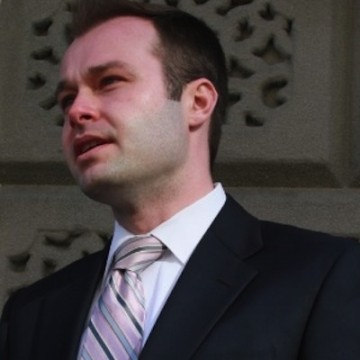Leonardo Angiulo: Combating the Effects of Heroin Addiction
Monday, June 16, 2014

Some people may not realize the depth of the crisis our communities are facing. According to recent testimony before the U.S. Senate, there was a 160% increase in the number of deaths related to prescription opiates between 1999 and 2004. Since 2004, the use of prescription opiates has spiked and an unfortunate consequence developed: pill users turn to heroin as a cheaper and easier to find alternative to pharmaceuticals. The link between heroin use and pharmaceutical opiates is documented by the National Institute on Drug Abuse who claim that nearly half of the young people using heroin today began by abusing prescription opioids.
As early as 2012, social welfare groups, including Partnership for Drug Free Kids in Florida, were sounding the alarm that this shift in opiate drug abuse was occurring. As many people could tell you, one of the most tragic consequences of this transition is that heroin comes with a distinct cast of characters. Specifically, heroin is an illicit substance made from poppies that are not native to this region. This means production, wholesale and retail operations are part of a larger network of illegality. In addition, while many public figures have admitted to prescription drug abuse in the past, and have been forgiven, heroin addiction still carries a social stigma.
The Northeast states have been particularly hard hit by the transition to heroin. According to a statement by Governor Peter Shumlin of Vermont in January, there has been a 770% increase in treatment for opiates in his state since 2000. Not only that, but the number of deaths from heroin overdose has doubled in the last year. Considering that many drug abusers turn to crime in order to support their habit, states are forced to choose between treatment and incarceration. While law enforcement has tried to keep up, the practical reality is that a week in a Vermont prison costs about $1,120 while a week of treatment at a state-funded center costs $123.
The state of Massachusetts is not immune from these circumstances either. On June 10, 2014 the Commonwealth released a report from the opioid task force, which includes both documentation of the epidemic and proposed countermeasures. Findings of the task force include a claim that the number of unintentional fatal opioid overdoses in Massachusetts increased 90% between 2000 and 2012. Interestingly, the task force's recommendations for combating this situation focus on treatment. Not only do we need rehabilitation facilities, the report states, but also further restricting the prescription of medication and bringing families into the rehabilitation process are cited as essential to success.
This past week, the Governors of both New York and Massachusetts independently announced their intentions to specifically confront the crises of prescription opioid and heroin abuse. Not surprisingly, both Mr. Cuomo and Mr. Patrick approach their similar problem in similar ways. They focus on educating young people to the risks of these substances while also acknowledging that the states cannot solve this problem on their own. The families and friends of addicts must also contribute by pushing their loved ones towards the help that they need. Of note is that both Governors also took steps to make Naloxone, an overdose antidote, more widely available to first responders and pharmacies.
It is often stated that addicts cannot begin their recovery until they acknowledge that they have a problem. In a similar way, we as a society cannot begin to rebuild until we admit that a number of us are facing a debilitating dependence on prescription opioids and heroin. By working together, we may not be able to cure opioid addiction, but we can undoubtedly take steps to improve the outlook for the future.

Related Articles
- Angiulo: Virginia Ruling Opens New Chapter in Gay Marriage Debate
- Leonardo Angiulo: U.S. Supreme Court Renews 2nd Amendment Debate
- Angiulo: New Mass. Case Limits Warrantless Electronic Surveillance
- Angiulo: Pretrial Probation—A Way to Avoid a Criminal Record
- Angiulo: Legal Upskirting: MA Got a Lot Creepier for Two Days
- Angiulo: What the Amanda Knox Retrial Says About American Justice
- Angiulo: There is No Sixth Amendment in China
- Angiulo: New Law Enforcement Tool Raises Important Questions
- Leonardo Angiulo: The Limits of the Presumption of Innocence
- Leonardo Angiulo: Medical Decision-Making in the Case of Children
- Leonardo Angiulo: Legally Speaking, What is Intent to Distribute?
- Angiulo: Storytelling Traditions Alive in Today’s Courtrooms
- Leonardo Angiulo: The Evolution of Federal Sentencing Guidelines
- Angiulo: Ten Years of Same-Sex Marriage in Massachusetts
- Leonardo Angiulo: MA Criminal Justice Attorney Pay at Crisis Level
- Leonardo Angiulo: Supreme Court Rules Raging Bull Lawsuit to Go Another Round in Federal Court
- Leonardo Angiulo: The Impact of Parole on Murder Sentences
- Leonardo Angiulo: How State Law Can Be Used To Promote Clean Energy
- Leonardo Angiulo: US Incarceration Rate May be Unsustainable
- Leonard Angiulo: Evolving Status of Animals in the MA Legal System
- Leonardo Angiulo: A Good Day for FBI, A Bad Day for Politicians
- Leonardo Angiulo: When a Car Accident Isn’t Just an Accident
- Leonardo Angiulo: Freedom of Information in Action
- Leonardo Angiulo: Money in Politics




 Delivered Free Every
Delivered Free Every
Follow us on Pinterest Google + Facebook Twitter See It Read It